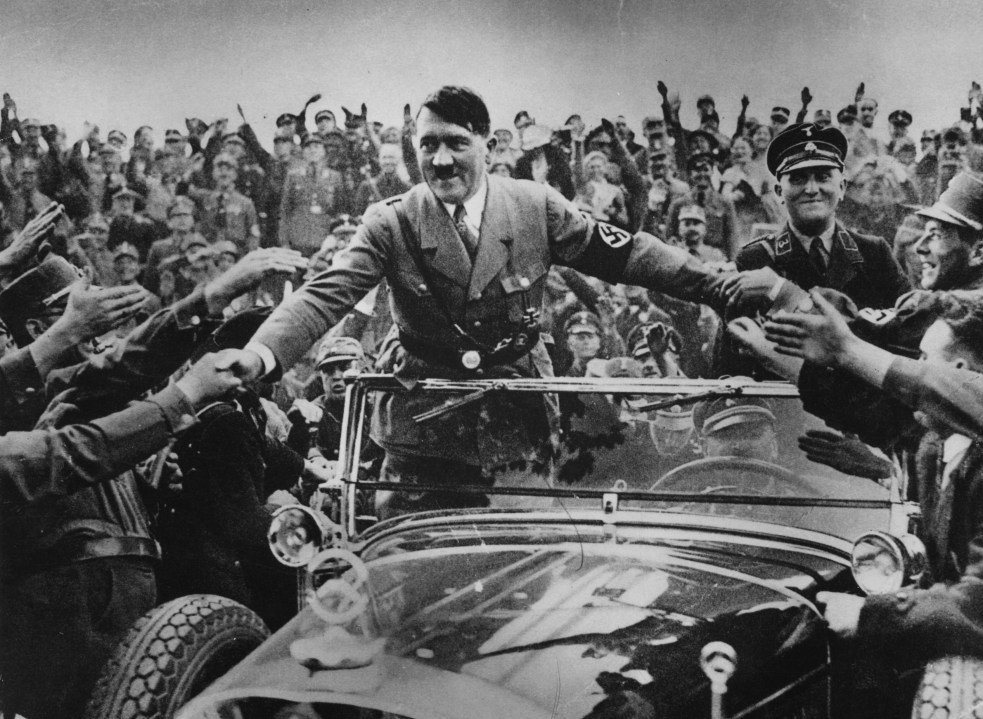The German ambassador, Peter Ammon, leaves Britain this month and retires after a distinguished diplomatic career as Berlin’s man in Paris, Washington, and finally London. Before packing his koffer, Herr Ammon issued the traditional plangent lament that every single German envoy to our shores in my adult lifetime has voiced: Why, oh why, must Britain keep mentioning the war?
In a valedictory interview with the Guardian (where else?) Herr Ammon appealed to the UK to stop ‘fixating’ on World War Two, instancing the huge success of the films ‘Dunkirk’ and ‘Darkest Hour’ as examples of our deplorable tendency ‘to focus only on how Britain stood alone in the war, how it stood against dominating Germany. Well, it is a nice story, but does not solve any problem of today’.
Essentially, this complaint by the ambassador – and his predecessors who have said much the same – is that of the German guests at Fawlty Towers: why must you Brits wallow in your glorious past, and why can’t you accept the reality of a brave new Europe in which we are a band of brothers bound together in fraternal amity, forgetting the horrors of the past?
The difficulty with this line of argument is that modern Germany is just as obsessed with the Second World War as Britain – the difference being that the two nations approach the subject from completely different angles.
Every year, I lead a historical trip to Germany on the theme of the rise and fall of the Third Reich. On each stage of the tour – at Dachau, Berchtesgaden, Nuremberg and Berlin – there is at least one newly built museum – the Germans call them ‘documentation centres’ – recording the story of Hitler, the Nazis, the war and the Holocaust, in minute, typically thorough, detail.
Knowledgeable guides conduct visitors around such sites as the first concentration camp; the Nazi party’s Munich HQ; Hitler’s Bavarian mountain retreat; the Nuremberg party rally grounds and the courtroom where the surviving Nazi leaders were tried and condemned; and the rooms in the Berlin defence ministry where Count von Stauffenberg launched his doomed putsch against the regime in July 1944. So no-one can fairly accuse the Germans of ignoring the war.
But where the two countries’ approach to the subject diverges is that the entire ethos and theme of these exhibitions is German guilt and German shame. Understandably enough, given that Teutonic nationalism and militarism twice devastated Europe over the past century, the Germans generally distrust patriotism in all its forms.
That is why German groupthink cannot comprehend why a majority of Britons voted voluntarily to leave the EU in 2016. For most Germans, dissolving the nation state into a federal superstate, no matter how dubious that superstate’s democratic legitimacy, is the only possible way for Europe to go. To such a mindset, Brexit is akin to an act of marital infidelity and betrayal.
I still treasure a copy of the news magazine Der Spiegel published in a bilingual German and English edition the week before the Referendum, that pleaded, like a spurned lover, ‘Please don’t go!’. But go was what we decided to do.
It is this utter incompatibility of outlook: the one shuddering in embarrassment and disdain at any hint of love of country; the other rightfully applauding the spectacle of a proud nation standing alone against a monstrous tyranny, that undercuts any hope of alignment between the two views.
Seeing the same events from such opposite angles explains the German – and the wider European – failure to offer the necessary concessions to prevent Brexit. A country that is so ashamed of its own history is fated to sneer at one that is still proud of its past.







Comments